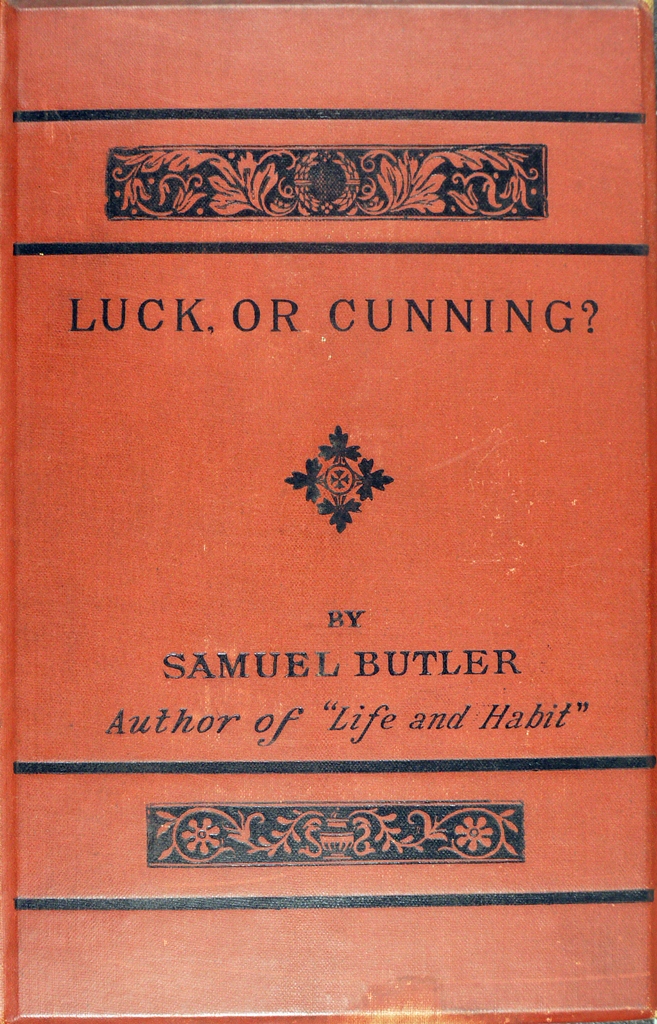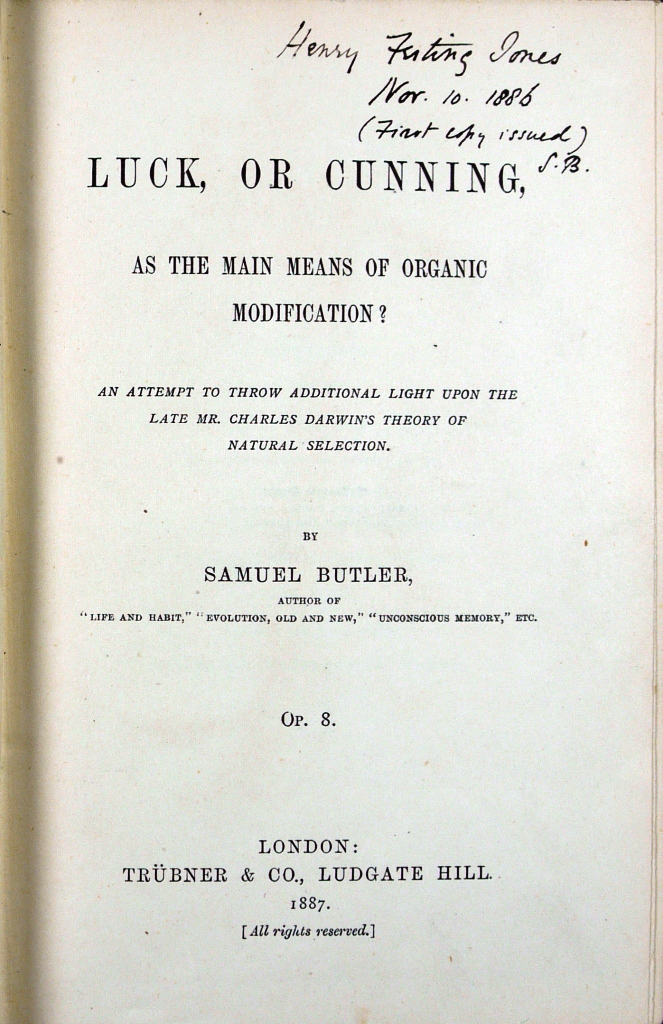'Luck, or Cunning, as the Main Means of Organic Modification?', by Samuel Butler (1887)


(BII LUC 1887.4 )
Luck, or Cunning? marked Butler’s final attempt to refute the arguments of Darwinism and its main supporters. As the title suggests, in this book he attempted to reduce the complexity of evolutionary theory to a simple opposition: all arguments in favour of a kind of ‘intelligent design’ against arguments for ‘random’ variation (i.e. natural selection). Herbert Spencer, Charles Darwin and George Romanes were cast as the enemy, styled as the ‘apostles of luck’. On the side of ‘cunning’ were Erasmus Darwin, Buffon, and of course Butler – all of whom appreciated the supposed design and purpose in the universe.
By proposing that design is inherent in individual organisms, Butler thought he could reconcile Darwinian modification by descent and the insistence on design exemplified by works such as William Paley’s Natural Theology (1802). However, the real emphasis of Butler’s book lay in his personal animosity towards Darwin and his followers, and Butler’s combative tone unfortunately detracted from his scientific considerations.